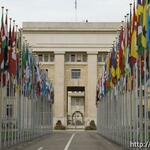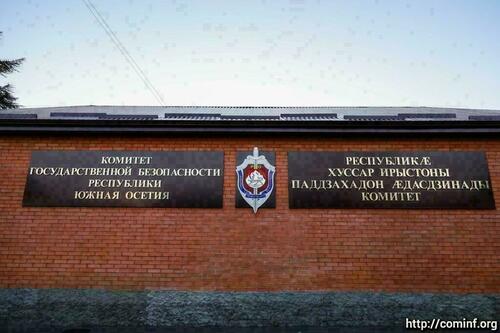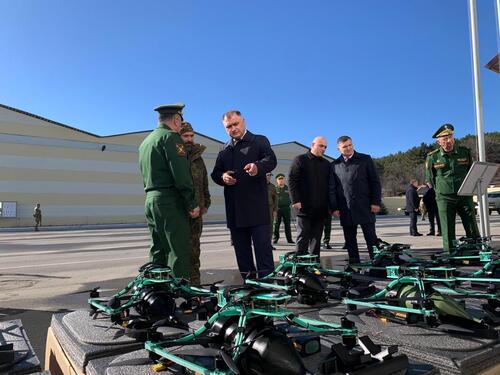The attempt of the Georgian participants to move the rally hysteria from the streets of Tbilisi to the Geneva venue was unsuccessful, although the atmosphere of the meeting was negatively affected by the ongoing anti-Russian campaign in Georgia, accompanied by aggressive rhetoric against South Ossetia and Abkhazia. This is stated in the message of the South Ossetian delegation on the results of the 58th round of the Geneva discussions on security in Transcaucasia.
On July 11-12, 2023, another round of international discussions on security in Transcaucasia took place in Geneva. The meeting was attended by delegations from the Republic of South Ossetia, the Republic of Abkhazia, Georgia, the Russian Federation, the United States, as well as the EU, the UN and the OSCE representatives.
The South Ossetian delegation was headed by State Advisor to President of the Republic of South Ossetia Konstantin Kochiev.
According to the report, the participants of the meeting have again noted that the Geneva discussions remain a factor in maintaining stability and the only platform for discussing emerging issues and threats that require attention, and a long pause in the Geneva process creates risks for regional security. Participants welcomed the return to the predictable frequency of meetings of the International Geneva Discussions.
“The South Ossetian, Abkhaz and Russian participants in the discussions paid priority attention to the need to develop a legally binding document designed to guarantee the security of South Ossetia and Abkhazia, non-use of force or threat of force by Georgia. Such a document would be the basis for maintaining stability backed by strong guarantees and strengthening the existing security structere. The destructive position taken by the representatives of Georgia does not allow progress in resolving this key issue, which is becoming increasingly important against the backdrop of the ongoing buildup of Georgia's military potential,” the South Ossetian delegation noted.
It was also stated that the polar positions of the parties make it difficult to agree on the parameters of the document on the non-use of force, however, the South Ossetian, Abkhaz and Russian participants called for continued efforts in this important area.
As an equally significant issue for regional security, the South Ossetian and Russian parties consider delimitation followed by demarcation with Georgia, which would minimize the risks of escalating tensions due to illegal border crossings.
Discussing the issues of stability and security in the area of the South Ossetian-Georgian state border, the participants of the meeting noted the absence of serious incidents in recent times, while the effectiveness of the Incident Prevention and Response Mechanism in the area of the South Ossetian-Georgian border (IPRM) operating under the auspices of the Geneva Discussions was again noted, as well as the uninterrupted operation of the hotline.
A detailed conversation also took place on humanitarian issues. Priority was given to the fate of the missing persons. The South Ossetian participants noted that the assurances of the current Georgian authorities on the responsible attitude to the search for the missing did not affect the results of the work. The South Ossetian party called on the international mediators to encourage Georgia to move from imitation activities to the work to quickly clarify the fate of the missing or forcibly disappeared citizens of South Ossetia.
In connection with the adoption on June 7, 2023 at the UN General Assembly by Georgia of another resolution on the issue of refugees, there was no discussion on the issue of refugees at the completed round. The adoption of this resolution, a draft of which has been submitted annually by Georgia for several years, was regarded by the delegations of South Ossetia, Abkhazia and Russia as a politicized step that impedes the solution of the complex humanitarian problem of refugees in the framework of the Geneva discussions. It is assumed that the resumption of discussions on the topic of refugees will become possible after Georgia stops its attempts to artificially politicize this problem.
In addition, attention was again strongly drawn to the ongoing violation by Georgia of the rights of the Tyrsygom Ossetians, who, due to the position taken by the Georgian authorities, have not been able to gain access to their ancestral villages over the past years.
An exchange of views also took place on a number of other humanitarian issues related to education, healthcare, and cultural heritage.
The next round of discussions is scheduled for December 2023.







